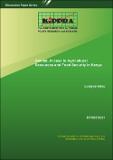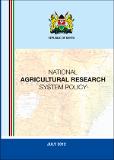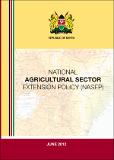| dc.description.abstract | Food insecurity is a major development challenge in developing countries.
In Kenya, the food poverty incidence remains high, as about 1 in every 3
individuals does not meet the minimum daily calorific requirement. Research
points to possible gender-linked pathways through which agriculture influences
food security in households. Gender considerations are especially important
in the African context where there are broad divisions in the responsibilities
between men and women and how they use their personal income in line with
traditional cultures. To evaluate this pathway in the Kenyan context, we explore
how women’s empowerment in agriculture compares to that of men, and its
effects on household’s food security outcomes, measured using household’s food
consumption scores. We find that approximately 28 per cent of households in
Kenya are food insecure. We further show that women in agriculture are more
disempowered relative to men. Women are mainly disempowered in: access
to and decisions on agricultural credit, agricultural group membership, and
asset ownership. Men are mainly disempowered in access to and decisions
on agricultural credit and agricultural group membership. We find that
women’s empowerment has a positive and significant effect on households’ food
consumption scores, whereas the male’s empowerment effect is weaker and
much lower. The dimensions of women’s empowerment that matter most in
increasing household’s food consumption cost are input in productive decisions,
control over use of income, and group membership. With men, the dimension
that matters most in increasing household’s food consumption cost is access
to and decisions on credit. The study results suggest that household food and
nutrition security could be enhanced to a greater degree through interventions
that promote women’s empowerment in agriculture. | en |




